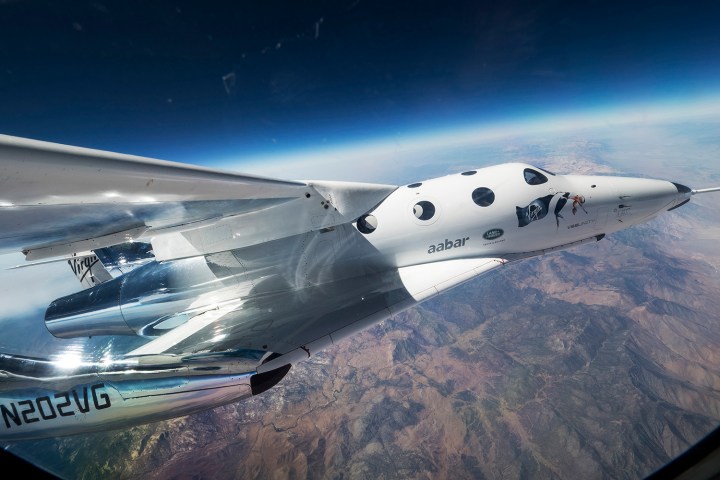
A suborbital space flight service for tourists could be launching from a spaceport in Italy within a couple of years after Virgin Galactic inked an agreement with two of the country’s largest aerospace companies.
The agreement with Italy’s leading private space company SITAEL, and ALTEC, a public-private company owned by both the Italian Space Agency and Thales Alenia Space, outlines plans for a spaceport to be constructed in the province of Grottaglie in the south of the country.
Besides providing launch facilities to take wealthy folks on a once-in-a-lifetime trip to the edge of space, the spaceport will also be used by customers such as the Italian Space Agency as a science platform for high-frequency space research, Virgin Galactic said in a release.
Virgin Group founder Richard Branson said he believes the collaboration will provide “a real impetus as we strive to open space for the benefit of life on Earth … together, we will help to expand opportunities for science, industry, and the millions of people who dream of experiencing space for themselves.”
Virgin Galactic recently completed the second successful rocket-powered test flight of its latest SpaceShipTwo plane called VSS Unity, the two-crew, six-passenger aircraft that will take space tourists on their thrilling trips to a point 62 miles above Earth.
Depending on how the trials progress, Virgin Galactic could launch its first commercial service for tourists from its existing Spaceport America in New Mexico. The company’s CEO, George Whitesides, even teased the idea of “high speed, intercontinental travel” between the American and Italian spaceports at some point in the future.
Virgin Galactic recently said it believes it can begin offering suborbital space trips in the next 12 months. Around 700 people have already booked a seat with the company, with each ticket costing $250,000. Virgin Galactic said the growing list of customers means anyone buying a ticket today will probably have to wait until at least 2021 before they can climb aboard the aircraft.
Blue Origin
Blue Origin, owned by Amazon CEO Jeff Bezos, is also developing technology for a service similar to that of Virgin Galactic, and there’s something of a race going on to see who can launch first.
Blue Origin’s reusable New Shepard rocket has so far completed eight successful test launches since its first one three years ago.
Branson said his team is neck and neck with Bezos’s, but mindful of the disaster that hit Virgin Galactic in 2014 when one of its pilots perished in a failed test flight, the Virgin boss said recently, “Ultimately, we have to do it safely. It’s more a race with ourselves to make sure we have the craft that are safe to put people up there.”
Editors' Recommendations
- SpaceX shares awesome rocket imagery from Starship flight
- SpaceX stands down from Falcon Heavy launch for third day in a row
- SpaceX gets big hint from FAA on next Starship launch opportunity
- How to watch Virgin Galactic send its first private tourist to edge of space
- Virgin Galactic sets date for first tourism flight with fee-paying civilians


